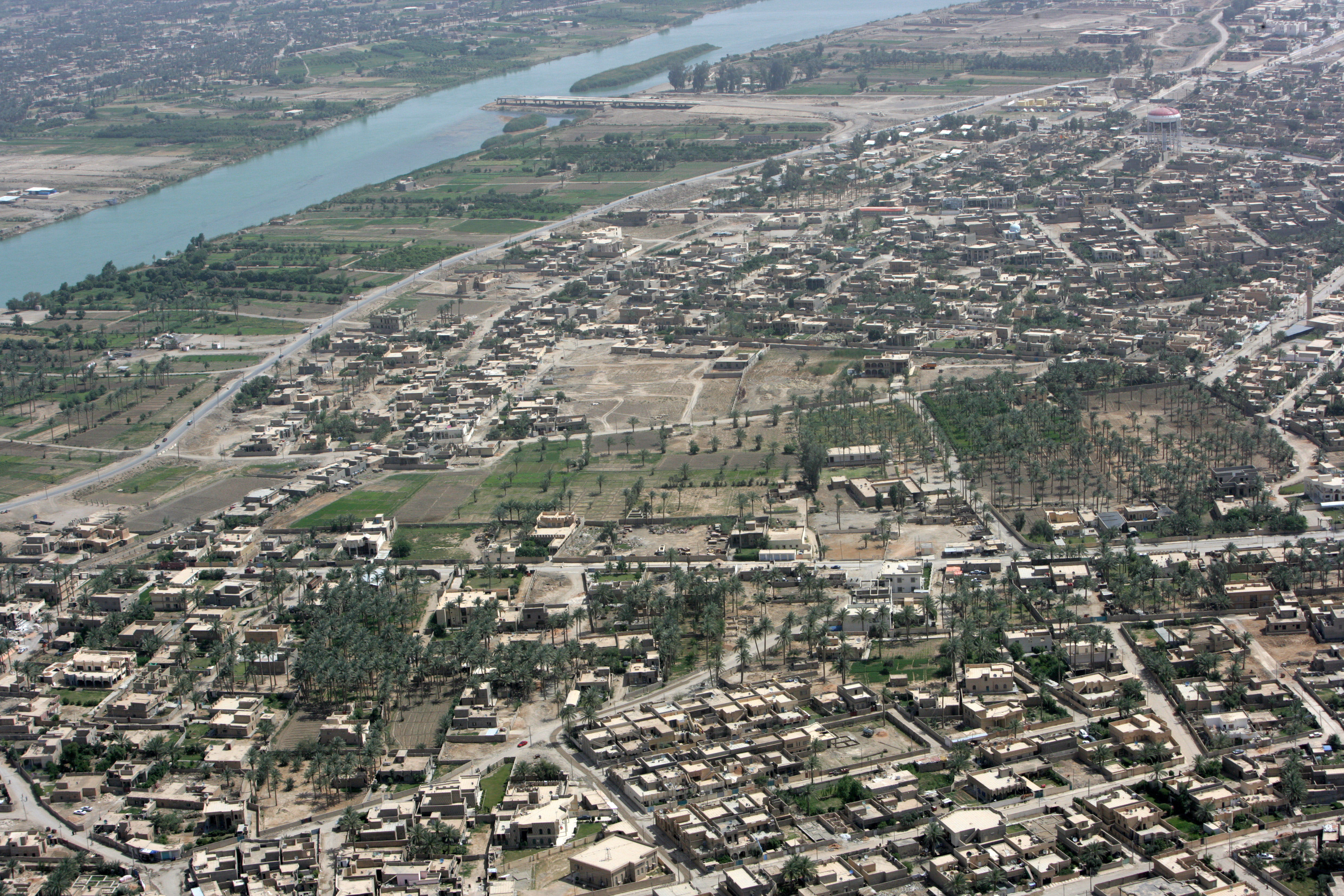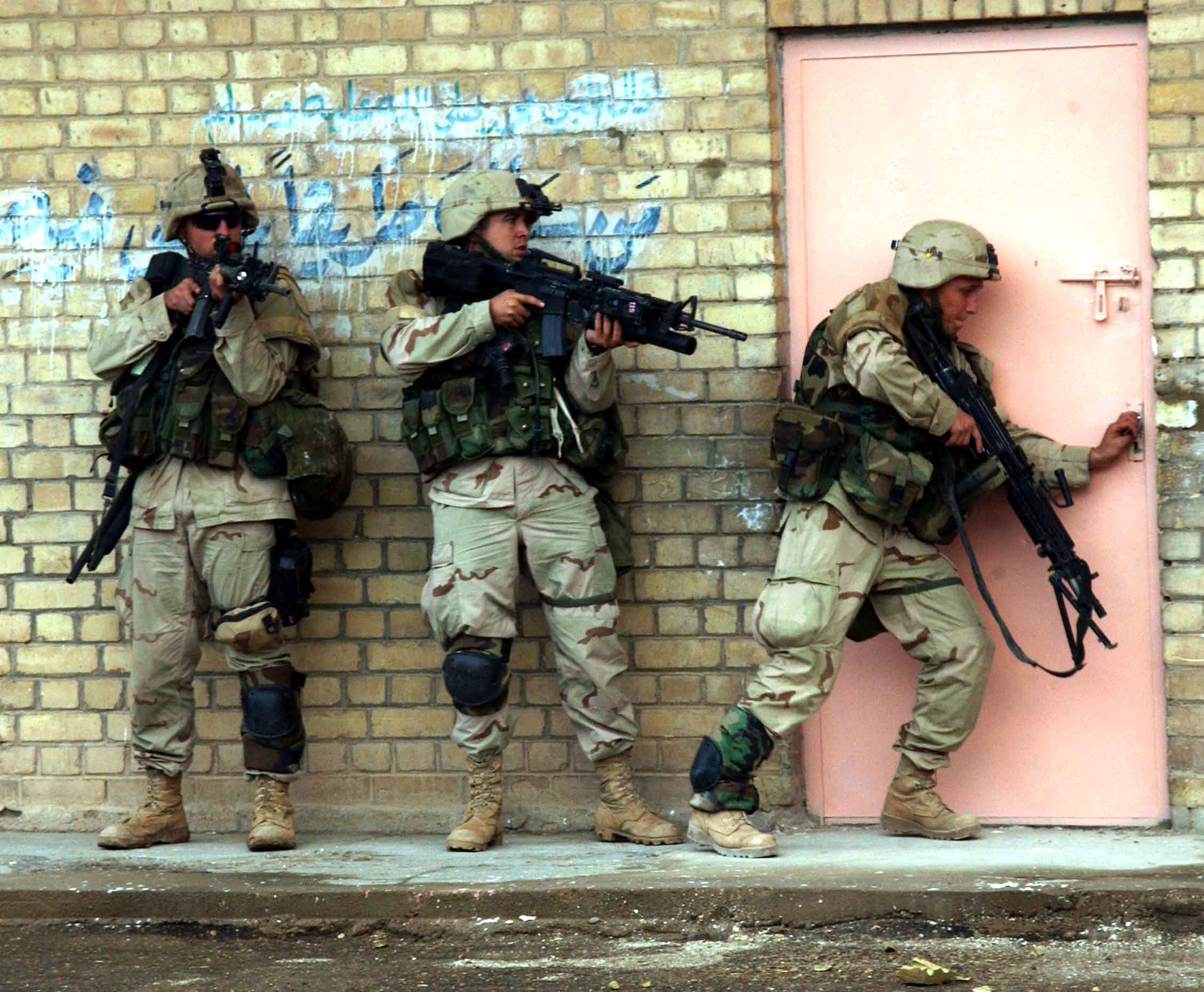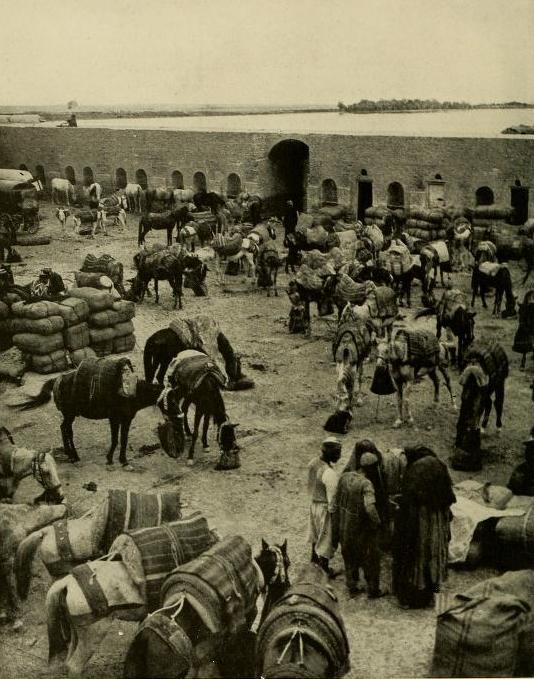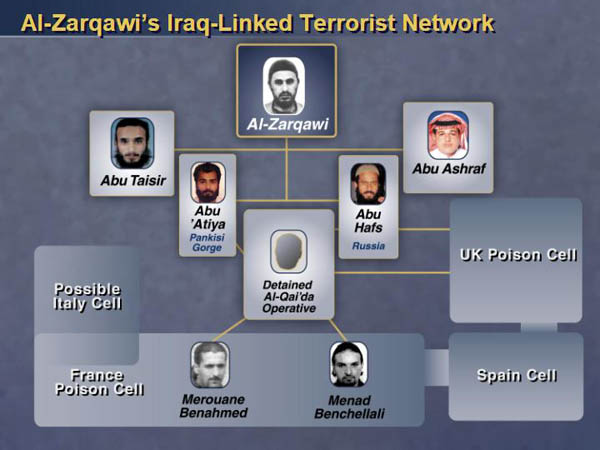|
Abu Mohammad Al-Adnani
Taha Sobhi Falaha ( ar, طٰهٰ صُبْحِيِّ فَلَاحَةٍ, Ṭāhā Ṣobḥī Falāḥa; 1977 – 30 August 2016), known as Abu Muhammad al-Adnani al-Shami ( ar, أَبُو مُحَمَّدٍ ٱلْعَدْنَانِيُّ ٱلشَّامِيُّ, ʾAbū Muḥammad al-ʿAdnānī aš-Šāmī), was the official spokesperson and a senior leader of the Islamic State. He was described as the chief of its external operations. He was the second most senior leader of the Islamic State after its leader Abu Bakr al-Baghdadi. Media reports in August 2016 suggested he was in charge of a special unit, known as the ''Emni'', that was established by IS in 2014 with the double objective of internal policing and executing operations outside IS territory. On 5 May 2015, the U.S. State Department Rewards for Justice Program announced a reward up to US$5 million for information leading to his capture. On 30 August 2016, the Islamic State announced al-Adnani had been killed in Aleppo Pr ... [...More Info...] [...Related Items...] OR: [Wikipedia] [Google] [Baidu] |
Islamic State
An Islamic state is a state that has a form of government based on Islamic law (sharia). As a term, it has been used to describe various historical polities and theories of governance in the Islamic world. As a translation of the Arabic term ''dawlah islāmiyyah'' ( ar, دولة إسلامية) it refers to a modern notion associated with political Islam (Islamism). Notable examples of historical Islamic states include the State of Medina, established by the Islamic prophet Muhammad, and the Arab Caliphate which continued under his successors and the Umayyads. The concept of the modern Islamic state has been articulated and promoted by ideologues such as Sayyid Rashid Rida, Mohammed Omar, Abul A'la Maududi, Ayatollah Ruhollah Khomeini, Israr Ahmed, Sayyid Qutb and Hassan al-Banna. Implementation of Islamic law plays an important role in modern theories of the Islamic state, as it did in classical Islamic political theories. However, most of the modern theories also ... [...More Info...] [...Related Items...] OR: [Wikipedia] [Google] [Baidu] |
Turki Al-Binali
Turki Mubarak Abdullah Ahmad al-Binali (3 September 1984 – 31 May 2017) was a Bahraini Islamic scholar and senior member of the Islamic State of Iraq and the Levant. As head of the Maktab al-Buhuth wa al-Dirasat (Office of Investigation and Studies), "an independent entity concerned with researching Shari'i issues, and issuing fatwas" he had considerable religious influence within the group. History Early life Turki al-Binali was born on 3 September 1984 in Al-Bousaiteen district, Al Muharraq, Bahrain to a wealthy, notable family that has close political relations to the ruling royal family of Bahrain, the Al-Khalifa. He attended classes that taught remembering the Qur'an in his hometown and he learned the recitation of Qur'an from one of the Sheikhs of Sultan Bin Salama Mosque. He also attended the classes of Sheikh Abu Zaid and another sheikh from Al-Janoubi Mosque in Al-Bousaiteen. He studied both the elementary and middle stages at Al-Iman school, a private religious ... [...More Info...] [...Related Items...] OR: [Wikipedia] [Google] [Baidu] |
Al Anbar Governorate
Al Anbar Governorate ( ar, محافظة الأنبار; ''muḥāfaẓat al-’Anbār''), or Anbar Province, is the largest governorate in Iraq by area. Encompassing much of the country's western territory, it shares borders with Syria, Jordan, and Saudi Arabia. The population is mostly Sunni Muslims. The provincial capital is Ramadi; other important cities include Fallujah and Al-Qa'im. The governorate was known as Ramadi up to 1976 when it was renamed Al Anbar Province, and it was known as Dulaim before 1962. A large majority of the inhabitants of the province are Sunni Muslims and most belong to the Dulaim tribe, all of which speak Arabic. In early 2014, the Islamic State, with the assistance of some local Sunni militias, launched a successful campaign to seize control of the province from the Iraqi government. Numerous offensive actions were undertaken by the Iraqi government, with the assistance of local Sunni tribes to remove ISIL's occupation of the province, especial ... [...More Info...] [...Related Items...] OR: [Wikipedia] [Google] [Baidu] |
Second Battle Of Fallujah
The Second Battle of Fallujah, codenamed Operation al-Fajr ( ar, الفجر, ) and Operation Phantom Fury, was an American-led offensive of the Iraq War that lasted roughly 6 weeks, starting 7th November, 2004. Marking the highest point of the conflict against the Iraqi insurgency, it was a joint military effort carried out by the United States, the Iraqi Interim Government, and the United Kingdom. Within the city of Fallujah, the coalition was led by the U.S. Marine Corps and U.S. Army, the battle was later described as "some of the heaviest urban combat U.S. military have been involved in since the Battle of Huế City in Vietnam in 1968".Ricks, Thomas E. (2007). ''Fiasco: The American Military Adventure in Iraq, 2003–2005''. Penguin. p. 399. . Operation Phantom Fury was the second major coalition effort in Fallujah. Earlier, in April 2004, coalition forces fought the First Battle of Fallujah in an attempt to capture or kill insurgent elements who were considered resp ... [...More Info...] [...Related Items...] OR: [Wikipedia] [Google] [Baidu] |
Fallujah
Fallujah ( ar, ٱلْفَلُّوجَة, al-Fallūjah, Iraqi pronunciation: ) is a city in the Iraqi province of Al Anbar, located roughly west of Baghdad on the Euphrates. Fallujah dates from Babylonian times and was host to important Jewish academies for many centuries. The city grew from a small town in 1947 to having a population of 275,128 inhabitants in 2011. Within Iraq, it is known as the "city of mosques" for the more than 200 mosques found in the city and the surrounding villages. The city became a major center of resistance against the Iraqi government during the Iraqi insurgency and the city was the scene of fierce fighting during the First and Second Battles of Fallujah. These battles left much of the city heavily damaged. In January 2014, the city was captured by the Islamic State and suffered major population loss. On 23 May 2016, Iraqi forces announced the beginning of their attempt to retake Fallujah from IS. On 26 June 2016 the city was declared fully ... [...More Info...] [...Related Items...] OR: [Wikipedia] [Google] [Baidu] |
Abu Hamza Al-Muhajir
Abu Ayyub al-Masri ( ; , ', translation: "Father of Ayyub the Egyptian"; 1967 – 18 April 2010), also known as Abu Hamza al-MuhajirWanted Poster on al-Masri (in Arabic), US Department of State.Wanted Poster on al-Masri , US Department of State. (; ', translation: "Father of Hamza the immigrant"), born Abdel Moneim Ezz El-Din Ali Al-Badawi ( ar, عبد المنعم عز الدين علي البدوي), was the leader of Al-Qaeda in Iraq during the |
Al-Bukamal
Abu Kamal ( ar, أَبُو كَمَال, ʾAbū Kamāl) or Al-Bukamal ( ar, ٱلْبُوكَمَال, al-Būkamāl) is a city on the Euphrates river in the Deir ez-Zor Governorate of eastern Syria near the border with Iraq. It is the administrative centre of the Abu Kamal District and the local subdistrict (Abu Kamal Subdistrict). Just to the south-east is the Al-Qa'im border crossing to the town of Husaybah in the Al-Qa'im District of Iraq's Al Anbar Governorate. Etymology When part of the Ottoman Empire, Abu Kamal was called ''kışla'', pronounced locally as "qashla", which is a Turkish word for "military barracks". This name "Qashla" is still used by some inhabitants of the area, especially by elderly villagers. The name "Al-Bukamal" () means "the family of Kamal", Kamal being the tribe that lives there, whereas the name "Abu Kamal" means "the father of Kamal". History In the 17th century, Abu Kamal was the seat of a sanjak of the Ottoman Empire in the Rakka Eyalet. It w ... [...More Info...] [...Related Items...] OR: [Wikipedia] [Google] [Baidu] |
General Intelligence Directorate (Syria)
The General Intelligence Directorate ( ar, إِدَارَةُ الْمُخَابَرَاتِ الْعَامَّةِ, ''ʾIdārat al-Mukhābarāt al-ʿAmmāh''), also known as the ''General Security Directorate'' or ''Syrian GID'', is the most important civil intelligence service of Syria and plays an important role in quelling internal dissent. The General Intelligence Directorate conducts surveillance of the Syrian population, directs foreign intelligence, and monitors activities in Lebanon. Organization The General Intelligence Directorate is under the jurisdiction of the Ministry of Interior. It is divided into three branches: * Internal Security Division (Branch 251) *External Security Division *Palestinian Affairs Division The internal security division is responsible for the internal surveillance of the population. The external security division is responsible for foreign intelligence work. And, the Palestinian division is responsible for monitoring the activities of ... [...More Info...] [...Related Items...] OR: [Wikipedia] [Google] [Baidu] |
Multi-National Force – Iraq
The Multi-National Force – Iraq (MNF–I), often referred to as the Coalition forces, was a military command during the 2003 invasion of Iraq and much of the ensuing Iraq War, led by the United States of America ( Operation Iraqi Freedom), United Kingdom ( Operation Telic), Australia, Italy ( Operation Ancient Babylon), Spain and Poland, responsible for conducting and handling military operations. The MNF-I replaced the previous force, Combined Joint Task Force 7, on 15 May 2004, and was later itself reorganized into its successor, United States Forces – Iraq, on 1 January 2010. The Force was significantly reinforced during the Iraq War troop surge of 2007. As of May 2011, all non-U.S. coalition members had withdrawn from Iraq, with the U.S. military withdrawing from the country on December 18, 2011, thus, bringing about an end to the Iraq War. The United Nations Assistance Mission in Iraq, which does humanitarian work and has a number of guards and military observers, has a ... [...More Info...] [...Related Items...] OR: [Wikipedia] [Google] [Baidu] |
Iraqi Insurgency (2003–11) , continued ISIL insurgency following territorial defeat
{{disambiguation ...
Iraqi insurgency may refer to: * Iraqi insurgency (2003–2011), part of the Iraq War ** Iraqi insurgency (2003–2006), 2003–2006 phase of the Iraqi insurgency ** Iraqi civil war (2006–2008), multi-sided civil war in Iraq * Iraqi insurgency (2011–2013), following the withdrawal of U.S. troops from Iraq * War in Iraq (2013–2017), armed conflict between ISIL and Iraq * ISIL insurgency in Iraq (2017–present) An Islamic state is a state that has a form of government based on Islamic law (sharia). As a term, it has been used to describe various historical polities and theories of governance in the Islamic world. As a translation of the Arabic term ' ... [...More Info...] [...Related Items...] OR: [Wikipedia] [Google] [Baidu] |
Bashar Al-Assad
Bashar Hafez al-Assad, ', Levantine pronunciation: ; (, born 11 September 1965) is a Syrian politician who is the 19th president of Syria, since 17 July 2000. In addition, he is the commander-in-chief of the Syrian Armed Forces and the Secretary-General of the Central Command of the Arab Socialist Ba'ath Party, which espouses the ideologies of neo-Ba'athism and Assadism. His father and predecessor was General Hafez al-Assad, whose presidency between 1971 to 2000 marked the transfiguration of Syria from a republican state into a dynastic military dictatorship tightly controlled by Alawite-dominated armed forces and ''Mukhabarat'' (secret services) loyal to the Assad family. Born and raised in Damascus, Bashar al-Assad graduated from the medical school of Damascus University in 1988 and began to work as a doctor in the Syrian Army. Four years later, he attended postgraduate studies at the Western Eye Hospital in London, specialising in ophthalmology. In 1994, af ... [...More Info...] [...Related Items...] OR: [Wikipedia] [Google] [Baidu] |
Abu Musab Al-Zarqawi
Abu Musab al-Zarqawi ( ar, أَبُو مُصْعَبٍ ٱلزَّرْقَاوِيُّ, ', ''Father of Musab, from Zarqa''; ; October 30, 1966 – June 7, 2006), born Ahmad Fadeel al-Nazal al-Khalayleh (, '), was a Jordanian jihadist who ran a terrorist training camp in Afghanistan. He became known after going to Iraq and being responsible for a series of bombings, beheadings, and attacks during the Iraq War, reportedly "turning an insurgency against US troops" in Iraq "into a Shia–Sunni civil war". He was sometimes known by his supporters as the "Sheikh of the slaughterers". He formed Jama'at al-Tawhid wal-Jihad in 1999, and led it until his death in June 2006. Zarqawi took responsibility, on several audio and video recordings, for numerous acts of violence in Iraq including suicide bombings and hostage executions. Zarqawi opposed the presence of U.S. and Western military forces in the Islamic world, as well as the West's support for the existence of Israel. In late 2004 he ... [...More Info...] [...Related Items...] OR: [Wikipedia] [Google] [Baidu] |




